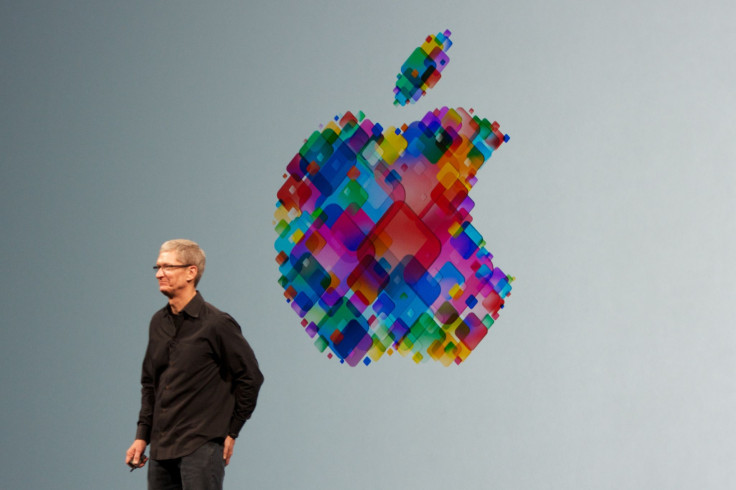It is possible that 2016 will be the calm before the storm of the next great iPhone. Consumers are demanding more than a bitten Apple logo for their hard-earned dollars, but Apple also wants to benefit. The next iPhone may not make as big a splash as previous iterations, but it may serve a more important role: finding out what consumers actually want from their devices.
While Apple remains on the top of the pack among tech giants, it has not been immune to the waxing and waning of consumer attention. Instead of conceding defeat, the company may use this time as an opportunity to stage a comeback and truly create lifelong Apple users. Step one of the Apple revolution? Getting access to your data.
“What Apple is trying to do is not just collect data from traditional search but from any interaction -- with your phone, with your TV, what your watch,” Jordan Edelson, CEO and Founder of the software development company Appetizer Mobile told iDigitalTimes. “Ultimately it can monetize with that but also trap you in that ecosystem. You’ll have iCloud, everything will be synced up within Apple, making it very difficult to switch over.”
The 2015 launch of the iPhone 6s and 6s Plus preceded Apple’s first sales slump and revenue drop in 13 years. Outside of a few software updates, camera tweaks and a new color option, the devices are largely the same as the 2014 iPhone 6 and 6 Plus, Apple’s last major upgrade of the smartphone.
Rumors for the September launch of the iPhone 7 are in full swing, and many indicate it too has few updates in store. So far, the biggest change to the iPhone 7 may be the removal of the device’s 3.5mm audio jack, the Wall Street Journal recently reported, backing up many longstanding rumors.
But Apple isn’t getting lazy. The manufacturer may have plans to extend its major release cycle by at least one year, meaning the next major upgrade likely won’t be seen until 2017, according to the WSJ. Many cues suggest Apple has plans to overhaul the iPhone in the slightly distant future. Apple CEO Tim Cook told CNBC in May the company has “great innovation” in store for the smartphone. These changes are expected to reinvigorate consumers and promote sales.
Apple has long been known as a tech company that wants to make lifelong customers out of its users. Increasingly, this seems to be less about brand loyalty and more about locking users into the Apple ecosystem with little incentive to venture to a competitor's platform. Apple has mastered this by providing high-quality and aesthetically pleasing devices with proprietary hardware and software that can’t be altered easily by second or third parties. Apple has built its product portfolio on the basis of devices that look pretty and just work, and has stood out in the market because of this ethos.
The move to extend its major release cycle may not be a Hail Mary for Apple, but rather a sign of the company's maturation in the market. Apple may now see more value in working to keep its existing customer base, rather than continue expanding its market share.
“If you can very easily switch over to Google or to another operating system, then [Apple] would have to be a bit more competitive, bringing [major iPhones] out every year or two years,” Edelson told iDigi. “It doesn’t have to do that -- it has locked people in and has created more and more systems to have control over people.”
To understand Apple’s intentions, one need look no further than the 2016 Worldwide Developer’s Conference keynote, where Apple announced updates to its WatchOS, Apple Music, Apple TV and Siri, among many others. All of these products have software or are software that Apple can use as a vehicle into the inner workings of its consumers.
Siri, in particular, may be a surefire way to data mine. It is not only now integrated into MacOS, but developers now have access to its code. These moves may seem like great consumer advancements, but they likely wouldn’t have happened if they didn’t ultimately benefit Apple.
“Siri will be a great way from [Apple] to capture data like it’s hasn’t really done before,” Edelson told iDigi. “The evolution of Siri being able to have developers go in and integrate it. This is just more data points for Apple to come in and link back and pull [users] into the system.”
Even if the iPhone 7 isn’t that flashy, its place in the Apple portfolio could definitely be a cornerstone for the company’s evolution into truly being an indispensable brand. Some users who purchased the iPhone 6 or iPhone 6s may choose not to upgrade to the iPhone 7, if it is doesn’t differ much from the predecessors. But the following iPhone may then look very tantalizing as their devices approach middle age or end of life.
“You’ll be less likely to switch platforms. [Apple can say,] ‘hey wait three years for this new revolutionary design iPhone,’ [and] it can kind of get away with that if you’re trapped in the ecosystem,” Edelson said. “Apple’s goal is to be an ecosystem or operating system for everything -- for your life.”

















